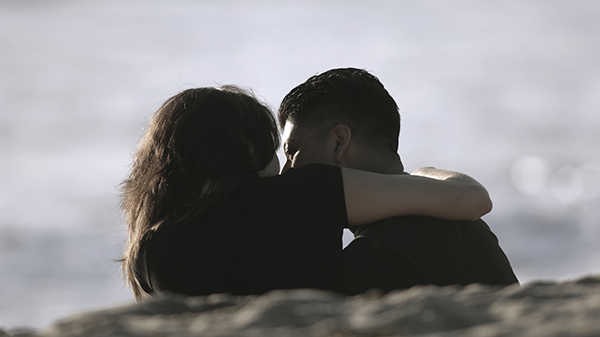
“Whoever fights monsters should see to it that in the process he does not become a monster.”–Friedrich Nietzsche
Co-dependency can be confusing for a lot of us to understand. One way of looking at it is like this: do you think you know best? You can do it better? You can fix him? You can help her? Do you find yourself attracted to partners who have addictions?
Sometimes an addict will spark co-dependent traits in a person. Perhaps you have not experienced it before but all of a sudden you are fixating on your partner’s flaws, looking at his emails and texts, seeing how he acts out, his behaviors. When one person is pulling away and retreating, the other partner often turns to co-dependency because she is anxious and it helps calm her brain for a short while. It distracts her from her own problems and choices.
We encourage co-dependents to bring the focus back to themselves. Of course venting and explaining the situation is a necessary part of therapy. But beyond the content, there are hidden emotions. It is an exercise in perception. We will ask you to start to distinguish what works in your life and what is no longer useful or even necessary.
Co-dependents are often reliable, bright, strong people who others learn to rely upon. Co-dependents want to help people! Often co-dependents are attracted to the helping professions: therapists, teachers, lawyers, advocates.
Where is this behavior learned?
It’s an adaptive behavior and helps children to cope. It’s quite possible you grew up in a home with addiction. Often ACOAs (Adult Children of Alcoholics) say to me, “I had to take care of my mother. I had to tend to the house.” Other people experienced covert incest whereby one parent relied on them when they were children, to act as an emotional surrogate parent. There may not have been any sexual incest, but the covert incest is emotional. It is real and very damaging. Often these people come into my practice saying, “I just can’t seem to keep a relationship, I either end up not feeling very special and I felt very special as a child (read: too special).” Or, “I feel really smothered in relationships. I think I want one, and maybe there’s someone out there more compatible. But, what often happens is I feel like I can’t breathe and I want to get out. I know it’s a pattern, I’ve been doing it for twenty years now.”
When parents rely on their children for emotional support, children feel special in the moment but ultimately it is a burden they did not ask for. Children need to know that their parents are emotionally stable and taking care of their own lives, then they can individuate eventually. They can grow up to have healthy adult attachments. Sometimes children get this unspoken message: “I must take care of my parent. They are not okay without me. They need me.” When these children become adults they struggle and fail to have intimate relationships. If they have them at all, they are wracked with problems. Sometimes these children never individuate from parents because it simply is not safe to do so.
Or…maybe you had terrific parents, who had good boundaries with you, modeled a healthy relationship, a secure attachment, but you had a sibling relationship or a friend who was problematic or another person in your life who provided confusion about boundaries and give and take in a relationship. There was a lack of balance. People suffering from co-dependence are the givers. They give so much and give so freely and then report lots of resentment and anger. It’s not so bad to give to others, it is often a positive, but it can set up unrealistic expectations from others who will invariably disappoint you.
Think martyr, not doormat. Strong on the outside. Falling apart on the inside.
What are your own standards? What do you like about yourself? What are your needs? How about limitations?
What stops you from doing what you really like to do? How do you make decisions? How do your fears affect the way you make these decisions? How do you react when someone makes a demand of you?
Who sets the boundaries in your relationships? What were the main reasons why major relationships in your life ended? How do you show others you care for them when you disagree with what they say and do?
When looking back on your life do you think: I would like to have had more fun, more joy?
For co-dependents, just having a good time is difficult. If this sounds like you, we encourage you to check out an Alanon meeting. If you think you might be co-dependent, try googling the terms below and call us…stop living in isolation and being afraid to let people know what is really going on inside.


